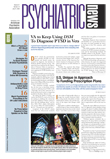The March 3 issue ran an article on an FDA panel's unexpected recommendation of a black-box warning for stimulants, despite minimal evidence of a direct link to serious or fatal outcomes and a level of risk (even accepting such a link) far, far below that involved in many nonpsychiatric medications.
While one would have thought that the FDA had learned by now—given the fiasco of the antidepressant black-box warning—that its actions can have serious consequences and must therefore be well considered, cautious, and scientifically based, that is not what we see. This latest recommendation is even more clearly based in a new role the FDA is assuming, that of a moral watchdog whose purpose is to make sure the rest of us “do the right thing.” The underlying assumption is that we don't read the literature and don't pay any attention to the PDR and related databases and instead prescribe what the drug companies tell us to prescribe with the only other motive to get rich off a gullible public. Or perhaps it is that the FDA believes that we have no understanding or concern for the wider issues of prescriptive practice and are incompetent to guide overall prescribing patterns.
Whatever the rationale, the FDA and its advisory panels have a disturbing new face of moral rectitude these days. Behind that façade, one easily senses politics, prejudice, and power hunger. The fact is that there was no excuse for putting a black box on antidepressants, and it did great harm, which the FDA is not tracking. The good data in the black box are part of every medical student's training and contained in every psychiatric textbook and PDR entry.
The black-box recommendation for stimulants (hopefully it is stimulants—imagine the comic horror of a black box on “ADHD drugs”) is even more openly a departure from science. It is based on the panel's vague concerns about overprescribing and the legitimacy of psychiatric diagnosis.
Dr. Steven Nissen, and FDA consultant, wants my hand to tremble when I prescribe stimulants. Does his tremble when he prescribes digoxin or any one of the other toxic and potentially lethal drugs he prescribes routinely as a cardiologist? I want it to, because I regularly have to clean up the psychiatric mess created when nonpsychiatrists prescribe drugs with psychiatric side effects they never check for and wouldn't admit to seeing.
And then, of course, when the press gets hold of news about black-box warnings, reporters write uninformed articles, confirming every stigma and prejudice our culture has and encouraging witch hunts all around.
